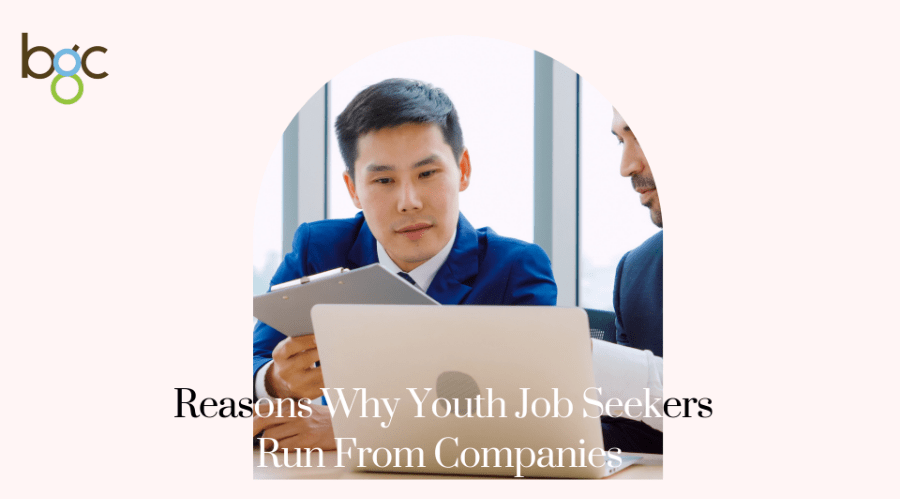As the end of the year draws close to us. Many amongst us are starting to rethink our current career decisions. Perhaps the concluding year has made us realise that we need to earn more. Or perhaps, we come to realise that we’ve learned and picked up multiple skills throughout the year. Whatever your reasons may be, the new year will always bring about new changes.
But what exactly are some of the reasons that make many employees leave at the end or the beginning of every year? Thankfully, as an HR recruitment agency, we’re aware of some of the reasons that result in people choosing to leave. We share them below!
The impacts of COVID-19 amongst South East Asian employees
There is no denying that the past two years have resulted in some changes to our working life here in Singapore. One of the many changes that has impacted many employees in Singapore is the flexible work arrangements that many companies now offer to limit the spread of COVID-19.
According to Today Online, a 2021 survey conducted by a recruitment firm found that 608 respondents from six Southeast Asian countries — Singapore, Malaysia, Thailand, Indonesia, Vietnam, and the Philippines — found that the pandemic has shaped employees’ perspectives of work, especially in terms of hybrid working and company values. Those surveyed claim that they’ve declined job offers from companies who failed to give their employees flexible office arrangements. Instead, these companies required employees to work from the office full-time.
However, employers should know that despite the pandemic, job seekers are not looking to work for companies that offer low balling salaries. An article by Channel News Asia states that job seekers from non-competitive sectors were willing to accept lower salaries. But how much lower are they willing to go? Some candidates interviewed claim that they’re not willing to accept a pay cut of 5-10%. Others, hiring managers claim, try to accommodate the companies request of a slight pay cut. But enforce strong boundaries such as no working over the weekends and overtime pay when required. In a new world, where the lines between work and rest grow thinner and thinner. These requests should come as no surprise to any HR representative or hiring manager in Singapore.
If you’re wondering what the glass slipper formula is, we’ve got the answer right here. According to the survey results, job seekers want to ideally work in the office at least twice a week. But that’s not all that they look for in a company.
Pro-Tip: Are you an employee feeling extremely burnt out and exhausted due to working from home? As a recruitment agency, we regularly receive complaints from both our candidates and our own internal staff about the blurred lines between work and play. However, there are plenty of different ways to blow off some steam during this work from home season.
Some of them include discussing stringent boundaries with your supervisors and self-care. Learn more on beating the work from home blues with these articles:
Millennials and Generation Z want employers to share their values
As the job seeker pool gets more and more saturated with members from the newer generation. It should come as no surprise that many of these new job seekers come into the job market with different values than their predecessors. But what are some of these values that Millennials and Gen Z job seekers look out for?
Well, according to a survey by a local recruitment company, the top three values that younger job seekers lookout for in companies are:
67% of respondents look for an alignment based on racial, cultural and religious values
67% of respondents seek an organization that values diversity, inclusion and equality
56% of respondents seek worker’s rights
It’s interesting to note how youths are taking an interest in social issues. Some concerns that a 2021 survey by Deloitte has found include:
Knowing what firms are doing with regards to social issues. Currently, the younger generation are invested in issues such as climate change and the environment.
Mental health and stress remains one of the top social issues that concern youths. Approximately 40% of youths surveyed felt like their employers have done a poor job of supporting their mental well-being during the pandemic. On top of that, more than 40% of both Millennials and Gen Z state that they feel stressed out all the time due to the pandemic.
Some of the youth respondents felt like businesses are not looking to create any societal changes. The surveyors believe that some organizations are focused solely on their own agendas or that they have no motivations beyond profitability.
6 in 10 Gen Zs see systemic racism as being fairly widespread in society. 1 in 5 youths said that they feel personally discriminated against due to systemic racism. This concern should be taken seriously as Singapore is a multi-racial and multi-religious society.
Keeping your employees and job seekers happy should be one of the top priorities of a company. In a digital world where the good and bad are put on the spotlight online. Companies should feel the pressure to keep up and find solutions to make all their employees and job seekers feel included and happy. After all, a happy employee is a productive employee.
The benefits of a happy employee and job seeker
Other than productivity, happy employees and job seekers provide a number of benefits for the company. Unhappy and distant employees will leave the company in search of happiness somewhere else. We no longer live in a world where employees stay in companies for decades out of loyalty. Nowadays, it’s common for employees to spend just one or two years at a company before moving onto a different company.
We’re curious what our very own BGC candidates look for in a company during the job hunt. Help us understand you better by completing a short survey here.
Read More: How to Attract Gen Zers to Your Company
